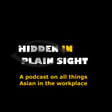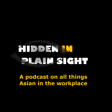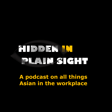
Employee resource groups: Helpful, harmful, or just PR?
In this episode, we talk broadly about why some AAPI professionals don’t feel supported in Employee Resource Groups (ERG) and how that feeling and experience translate to other areas. As usual, we draw from the research and our own experience to discuss what lack of support looks like; what could be driving this trend; and what to do about it.
Let us know about your perspective. How supported do you feel at work?Reach us at: [email protected]
Haiku
Amidst hate and fear
Solidarity will show
Love for all Asians!
Articles for Nerds!
Asian Americans most likely to join employee diversity groups but don't feel supported, report says
AAPI Data|Momentive poll: 2023 diversity in American life
https://www.surveymonkey.com/curiosity/aapi-data-2023/
Asian Researchers Face Disparity With Key U.S. Science Funding Source
https://www.nytimes.com/2023/01/04/science/asian-scientists-nsf-funding.html
Nguyen, D. V., Block, C. J., Kim, J. Y., & Yu, H. (in press). General and Stereotype-based Microaggressions Experienced by Asians and Asian Americans in the workplace: A Qualitative Study. American Behavioral Scientist.





